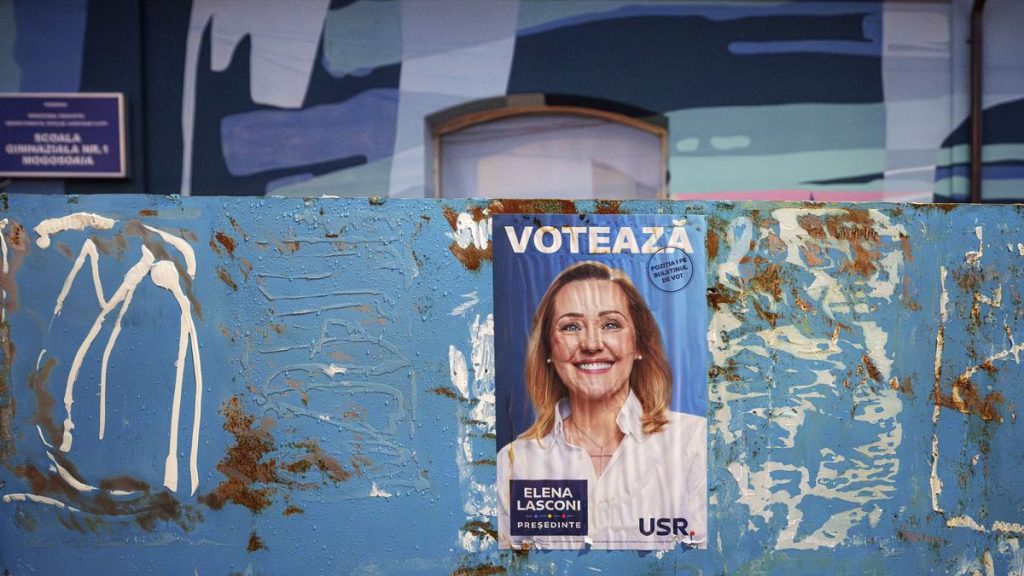The Romanian presidential election, scheduled to conclude with a second round run-off between pro-EU liberal Elena Lasconi and independent, Eurosceptic candidate Călin Georgescu, was abruptly cancelled by the country’s Constitutional Court, triggering a wave of criticism and raising concerns about foreign interference. The court justified its unprecedented decision by citing the need to “ensure the fairness and legality of the electoral process,” but offered little further explanation, leaving the political landscape in turmoil and sparking accusations of undermining democracy. While the two candidates vehemently denounced the ruling, the European Commission chose to refrain from direct comment, emphasizing its respect for member states’ sovereignty in judicial and electoral matters. However, the Commission underscored its commitment to supporting free and fair elections and initiated inquiries into the role of social media, particularly TikTok, in the electoral process.
The controversy surrounding the election cancellation deepened with the revelation of intelligence reports declassified by Romanian President Klaus Iohannis. These reports alleged that Georgescu’s unexpected surge in popularity was not organic but rather the result of a coordinated online manipulation campaign, primarily orchestrated through TikTok. The intelligence agencies hinted at the involvement of a “state actor” with methods resembling those previously employed by Russia in Ukraine, although they stopped short of explicitly naming Russia as the culprit. The reports detailed a network of accounts, largely dormant since 2016, that sprung to life in the weeks leading up to the first round of voting, disseminating pro-Georgescu content and manipulating the platform’s algorithm. The operation was reportedly coordinated through the messaging app Telegram and involved significant financial resources, with nearly one million euros allegedly spent by an individual backing Georgescu’s candidacy.
The revelation of this alleged foreign interference campaign sent shockwaves through Romania and raised concerns within the European Union about the vulnerability of democratic processes to external manipulation, particularly through social media platforms. The European Commission, while refraining from commenting on the Constitutional Court’s decision, signaled its concern about the potential violation of the Digital Services Act (DSA), the bloc’s new law aimed at combating disinformation and illegal content online. The Commission sent two urgent requests for information to TikTok, demanding clarification on the platform’s role in the Romanian election and its compliance with the DSA. The Chinese-owned company responded to both requests, and the Commission is currently analyzing the provided information.
The cancelled election and the allegations of foreign interference have thrown Romania’s political future into uncertainty. Both candidates have criticized the Constitutional Court’s decision, with Lasconi labeling it “illegal” and Georgescu denouncing it as a cancellation of democracy itself. The incident underscores the growing concerns about the influence of social media platforms on elections and the potential for their manipulation by external actors. The European Commission’s cautious approach reflects the delicate balance between respecting member states’ sovereignty and upholding the principles of free and fair elections within the EU. The Commission’s scrutiny of TikTok’s activities in the Romanian election signals a growing determination to hold social media platforms accountable for their role in safeguarding democratic processes.
The case of the Romanian election highlights the increasing complexity and vulnerability of democratic processes in the digital age. The ability of foreign actors to manipulate social media platforms and influence electoral outcomes poses a serious threat to the integrity of democratic systems. The European Union’s response, embodied in the DSA, represents an attempt to regulate the online space and combat disinformation, but the effectiveness of these measures remains to be seen. The Romanian case serves as a stark reminder of the need for constant vigilance and proactive measures to protect democratic processes from external interference. The ongoing investigation into TikTok’s role in the election and the potential consequences for the platform will set an important precedent for future cases of alleged online manipulation.
The unfolding situation in Romania underscores the challenges faced by democracies in navigating the increasingly complex landscape of online information and influence. The interplay between national sovereignty, the role of social media platforms, and the threat of foreign interference presents a complex puzzle for policymakers and regulators. The European Commission’s cautious yet determined approach reflects the need for a nuanced response that respects member states’ autonomy while upholding the fundamental principles of democratic integrity. The Romanian case will undoubtedly serve as a crucial test case for the DSA and the EU’s broader efforts to combat disinformation and protect the integrity of its democratic processes in the digital age. The outcome of the investigation into TikTok’s role in the election will likely have far-reaching implications for the regulation of social media platforms and the future of online political discourse.














